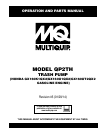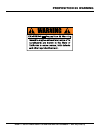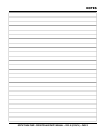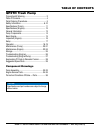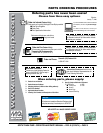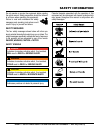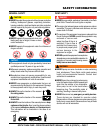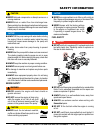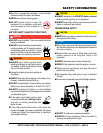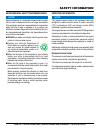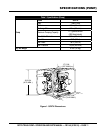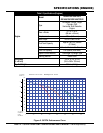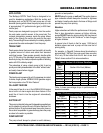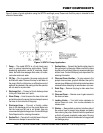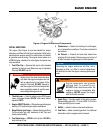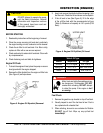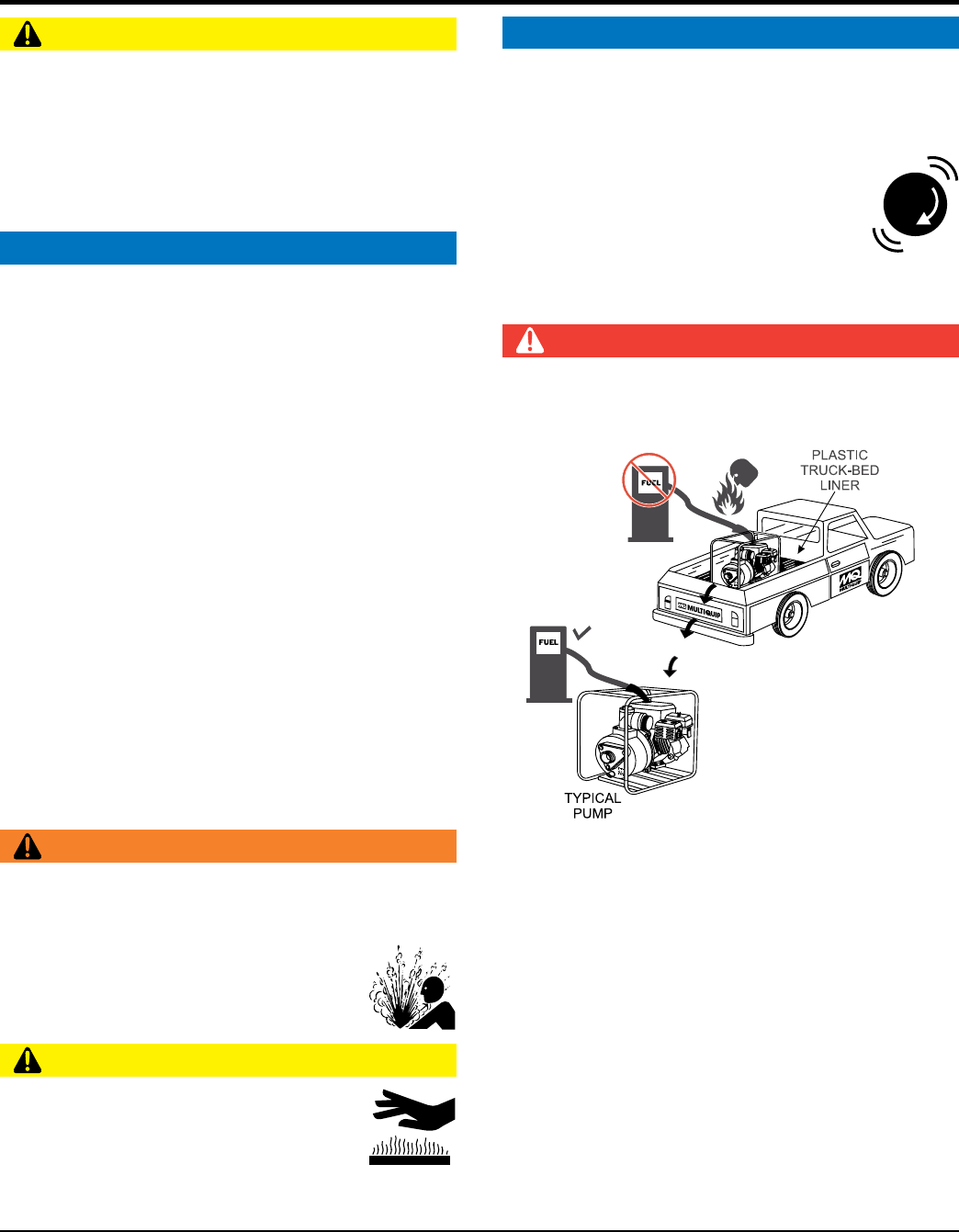
PAGE 8 — QP2TH TRASH PUMP • OPERATION AND PARTS MANUAL — REV. #5 (01/29/14)
SAFETY INFORMATION
CAUTION
NEVER lubricate components or attempt service on a
running machine.
NEVER block or restrict flow from discharge hose.
Remove kinks from discharge line before starting pump.
Operation with a blocked discharge line can cause water
inside pump to overheat.
NOTICE
ALWAYS fi ll the pump casing with water before starting
the engine. Failure to maintain water inside the pump
housing will cause severe damage to the pump and
mechanical seal.
In winter drain water from pump housing to prevent
freezing.
NEVER start the pump with the clean-out cover removed.
The rotating impeller inside the pump can cut or sever
objects caught in it. Before starting the pump, check that
the clean-out cover is securely fastened.
ALWAYS keep the machine in proper running condition.
ALWAYS ensure pump is on level ground before use.
Fix damage to machine and replace any broken parts
immediately.
ALWAYS store equipment properly when it is not being
used. Equipment should be stored in a clean, dry location
out of the reach of children and unauthorized personnel.
ENGINE SAFETY
WARNING
NEVER operate the engine with heat shields or
guards removed.
DO NOT remove the engine oil drain plug
while the engine is hot. Hot oil will gush
out of the oil tank and severely scald any
persons in the general area of the pump.
CAUTION
NEVER touch the hot exhaust manifold,
muffl er or cylinder. Allow these parts to cool
before servicing equipment.
NOTICE
NEVER
run engine without an air fi lter or with a dirty air
fi lter. Severe engine damage may occur. Service air fi lter
frequently to prevent engine malfunction.
NEVER tamper with the factory settings
of the engine or engine governor. Damage
to the engine or equipment can result
if operating in speed ranges above the
maximum allowable.
FUEL SAFETY
DANGER
DO NOT
add fuel to equipment if it is placed inside truck
bed with plastic liner. Possibility exists of explosion or
fi re due to static electricity.
DO NOT
start the engine near spilled fuel or combustible
fl uids. Fuel is extremely fl ammable and its vapors can
cause an explosion if ignited.
ALWAYS
refuel in a well-ventilated area, away from
sparks and open fl ames.
ALWAYS
use extreme caution when working with
fl ammable liquids.
DO NOT
fi ll the fuel tank while the engine is running
or hot.
DO NOT
overfi ll tank, since spilled fuel could ignite if it
comes into contact with hot engine parts or sparks from
the ignition system.



